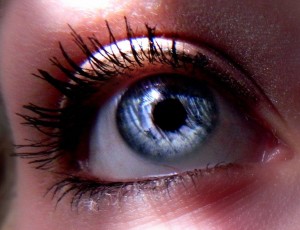Is Direct Awareness of Reality Just a Feeling?
Last time I claimed that our experience of the moral order through our moral sense is on a similar footing as our experience of physical objects through our physical senses. They are both a direct experience or awareness of reality.
Now clearly, there is also a difference. Our physical senses all work with empirical data. Our moral sense doesn’t. For those of us brought up under the influence of empiricism and scientism it can be difficult to accept that we can know anything that doesn’t involve empirical observation through our five physical senses, not to mention the existence of another sensory faculty, the moral sense.
But there is even another faculty as well that we are all quite familiar with – our rational faculty. When you come across an argument in the form of modus ponens,
- P > Q [which reads If P then Q]
- P
- Therefore, Q
you know Q logically follows from the first two premises.
How do you know this? Not empirically. You experience the truth of the logical inference we call modus ponens directly! One requires no proof for modus ponens. You either get it or you don’t. If you don’t get it, typically an example or two will provide the needed clarity for you to have that “ah-ha” experience.
This is an example of your rational sense directly experiencing reality. This time it is a logical reality. Your rational sense is also able to directly experience the reality of basic mathematical truths like 2 + 2 = 4.
“But isn’t this just a ‘feeling’?”, some students retort. And isn’t our alleged direct awareness through our moral sense, that torturing toddlers for sport is morally wrong, also just a ‘feeling’ ? I don’t think so.
The idea that our experience of our rational and moral faculties is just a ‘feeling’ and therefore easily dismissed is confused. Think about your sense of sight – you have a sensation of a tree in front of you. It would be easy to call this experience of a sensation a ‘feeling’ but that would confuse it with an emotion which it is not. It is an experience of direct awareness.
When you experience the truth of the logical inference modus ponens, it would be easy to call this experience a ‘feeling’ but that would confuse it with an emotion which it is not. It is a direct awareness of a logical truth through our rational sense.
Likewise when you are prompted to think about various examples of behaviour and are asked if they are morally good or bad, you directly experience the truth of many such examples: like torturing toddlers for sport [morally bad]. It would be easy to call this experience a ‘feeling’ but that would confuse it with an emotion which it is not. It is a direct awareness of a moral truth through our moral sense.
Even many atheist philosophers like Louise Antony do not have strong doubts about our ability to know objective moral truth. In a debate with W.L. Craig on the foundations of morality she said, “Any argument for moral scepticism will be based upon premises which are less obvious than the existence of objective moral values themselves.” She recognizes the strength of our knowledge of moral values through direct awareness. Through direct awareness we are warranted in claiming to know some moral truths.
This does not mean that we can never be wrong about our moral beliefs, but this is also the case with our direct awareness of the physical world. We are mistaken at times about what we think we are seeing. We think we see a bent stick in the water, when in fact the stick is straight – the bent stick is an illusion. But in both categories our beliefs obtained through direct awareness are prima facie justified, that is, justified in the absence of any defeaters of those beliefs.
When we claim to know that torturing toddlers for sport is morally wrong because of our direct awareness of the injustice of the behaviour, we are justified or warranted in our claim to knowledge, unless or until a defeater of our belief arises. There is a term for this type of moral experience. Can you think of what it is?
One Response to “Is Direct Awareness of Reality Just a Feeling?”
Leave a Reply
Talk to Someone
Latest Tweets by @michaelhorner3
Archives
- 2013 (28)
- 2012 (28)
- November (2)
- October (2)
- September (1)
- August (1)
- July (3)
- June (4)
- May (5)
- April (4)
- March (5)
- February (1)


I see you don’t monetize powertochange.com, don’t waste your traffic, you can earn extra bucks every month with new
monetization method. This is the best adsense alternative for
any type of website (they approve all sites), for more info simply search in gooogle: murgrabia’s tools